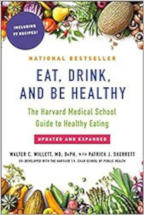Does Broccoli Have More Vitamin C Than An Orange
Vitamin C in Broccoli (and How it Compares to Oranges)
Published: January 25, 2019
Broccoli is probably not the first food that comes to mind when you think of foods that are rich in vitamin C. However, this unassuming vegetable is loaded with vitamin C, which contributes to the many wonderful health benefits of broccoli. In fact, raw broccoli contains even more vitamin C than oranges.
Read on to learn more about why broccoli is such as great source of vitamin C.
Amount of Vitamin C in Broccoli
Fresh broccoli is an excellent source of vitamin C: just 100 grams of raw broccoli provides about 89 milligrams of vitamin C (1). For reference, the recommended daily intake (RDI) is 90 milligrams for adults and children aged 4 years and older, according to the FDA's updated Nutrition and Supplement Facts guidelines (2).
This means that just 100 grams of broccoli, which equals about a quarter of a head of broccoli, can provide you with your daily dose of vitamin C.
Vitamin C is a water-soluble antioxidant and easily destroyed by heat, and a comparison of raw vs cooked broccoli confirms that raw broccoli is a better source of vitamin C than its cooked counterpart. However, according to a study published in the European Food Research and Technology, gently steaming broccoli, instead of boiling it, will result in a minimal loss of vitamin C (3).
Vitamin C in Broccoli vs Oranges (and Other Foods)
Many people turn to oranges as their go-to food for vitamin C. However, there is actually much more vitamin C in broccoli than in oranges: while broccoli contains 89 milligrams of vitamin C, oranges only contain 53 milligrams per 100 grams (1).
In fact, broccoli is just one of many common foods that contain more vitamin C than oranges. For example, the humble kiwi fruit contains 93 mg of vitamin C per 100 grams, or 103 percent of your daily vitamin C needs (1, 2).
However, neither broccoli, oranges, nor kiwis can beat vitamin C superfoods like camu camu or acerola cherries which contain over 1,000 milligrams of vitamin C per 100 grams.
Regular and Organic Broccoli Are Equally Good Sources of Vitamin C
Many studies have found that organically-grown vegetables often contain more vitamin C than their conventionally-grown counterparts. For example, one study found that vitamin C was 43 percent more abundant in organic cabbage than non-organic cabbage, while another study reported that organic kiwis contained much more vitamin C than their non-organic counterparts grown on the same farm (4, 5).
Interestingly, however, regular broccoli does not pale in comparison with organic broccoli in terms of vitamin C content. In fact, a study that compared the vitamin C content of organic versus non-organic broccoli found no significant difference between the two types (6).
Vitamin C Rich Foods, Such as Broccoli, Have Many Health Benefits
But why do we need to make sure we include plenty of vitamin C rich foods, such as broccoli, in our diets? You may have already heard that vitamin C might help prevent colds under certain circumstances, but that's just one of its many potential health benefits (7).
For example, vitamin C is also involved in keeping your bones, teeth and skin healthy, and it is known to improve the body's capability to absorb iron from foods.
Because of its antioxidant and anti-inflammatory properties, vitamin C may also be good for asthma and wheezing caused by exercise or infections such as the common cold, though more research is needed in this area.
There is also some evidence suggesting that vitamin C may help promote fat loss in some situations; however, further studies are needed before any definite conclusions can be made about the potential weight loss benefits of vitamin C.
In the meantime, if you are trying to increase your vitamin C intake because you want to shed a few pounds, broccoli is a great choice not only because it is rich in vitamin C but also because it's low in calories, high in fiber, and has a low glycemic load (see Broccoli for Weight Loss).
References
- USDA National Nutrient Database for Standard Reference Legacy Release, USDA, April 2018.
- Frequently Asked Questions for Industry on Nutrition Facts Labeling Requirements. Food and Drug Administration
- F. Vallejo et al (2002). Glucosinolates and vitamin C content in edible parts of broccoli florets after domestic cooking. European Food Research and Technology, 215(4):310-316
- V. Worthington (2001). Nutritional quality of organic versus conventional fruits, vegetables, and grains. Journal of Alternative and Complementary Medicine, 7(2):161-73.
- M. Amodio et al (2007). A comparative study of composition and postharvest performance of organically and conventionally grown kiwifruits. Journal of the Science of Food and Agriculture, 87(7):1228-1236.
- Wunderlich et al (2008). Nutritional quality of organic, conventional, and seasonally grown broccoli using vitamin C as a marker. International Journal of Food Sciences and Nutrition, 59(1):34-45.
- Vitamin C in Health and Disease—a special issue of the journal Nutrients.
Book You May Like

Written by Dr. Walter C. Willett, MD, DrPH, who has led the Department of Nutrition at the Harvard T.H. Chan School of Public Health for over twenty years, "Eat, Drink, and Be Healthy" draws on cutting-edge nutrition research to explain what the USDA dietary guidelines have gotten wrong — and how you can eat right. In this eye-opening book, the world-renowned researcher and bestselling author explains, among other things, how to choose foods with the best types of carbohydrates, fats, and proteins, and why keeping your weight in check is crucial for a long, healthy life.
Does Broccoli Have More Vitamin C Than An Orange
Source: https://www.healwithfood.org/vitamin-c/broccoli-vs-oranges

